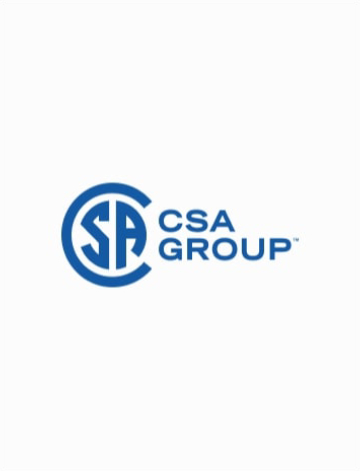Preface
This is the second edition of CSA/ANSI HGV 4.2, Hoses for dispensing compressed gaseous hydrogen. It supersedes the previous edition published in 2013.
This edition of CSA HGV 4.2 has been updated to include requirements for new technology; harmonizes requirements with the International Standard, ISO 19880-5:2019, Gaseous Hydrogen — Fuelling Stations — Part 5: Dispenser Hoses and Hose Assemblies; and has been reformatted to comply with current editorial practices at CSA Group.
CSA Group acknowledges that the development of this Standard was made possible, in part, by the financial support of Natural Resources Canada.
This Standard has been developed in compliance with Standards Council of Canada requirements for National Standards of Canada. It has been published as a National Standard of Canada by CSA Group.
This Standard has been approved by the American National Standards Institute (ANSI) as an American National Standard.
This Standard is considered suitable for use for conformity assessment within the stated scope of the Standard.
Scope
1.1 General
1.1.1 Inclusions
This Standard specifies requirements for materials, design, manufacture, and testing of hoses and hose assemblies used for dispensing compressed gaseous hydrogen to vehicles.
1.1.2 Applicability of this Standard
This Standard applies to hose assemblies used for connecting compressed gaseous hydrogen dispensers to fuelling nozzles and includes hose assemblies with integrated vent hoses.
1.1.3 Exclusions
This Standard does not apply to
a) hoses and hose assemblies used as part of vehicle on-board fuel storage systems;
b) bulk storage transfer; or
c) flexible metal hoses.
1.2 New and historical designs
This Standard is intended for new hose assembly designs and existing designs made with new materials. It is not intended for existing hose designs with history of use, hoses made of existing materials with history of use, or hoses qualified by industry-recognized organizations (e.g., ASME, CGA, MSS, and SAE) for use in compressed gaseous hydrogen applications.
Note: The exclusions in this Clause do not preclude manufacturers from using this Standard for certification purposes for existing hoses and hose assemblies with history of use.
1.3 Precedence of requirements and conflicts
1.3.1 Precedence of requirements
Application-specific standards supersede the requirements of this Standard.
1.3.2 Conflicts
In case of conflict between this Standard and federal, provincial, state, or local requirements, the governmental requirements take precedence.
1.4 Terminology
In this Standard, shall is used to express a requirement, i.e., a provision that the user is obliged to satisfy in order to comply with the standard; should is used to express a recommendation or that which is advised but not required; and may is used to express an option or that which is permissible within the limits of the Standard.
Notes accompanying clauses do not include requirements or alternative requirements; the purpose of a note accompanying a clause is to separate from the text explanatory or informative material.
Notes to tables and figures are considered part of the table or figure and may be written as requirements.
Annexes are designated normative (mandatory) or informative (non-mandatory) to define their application.
1.5 Units of measure
The values given in SI units are the units of record for the purposes of this Standard. The values given in parentheses are for information and comparison only.
Unless otherwise stated, all references to pressure throughout this Standard are gauge pressures.


